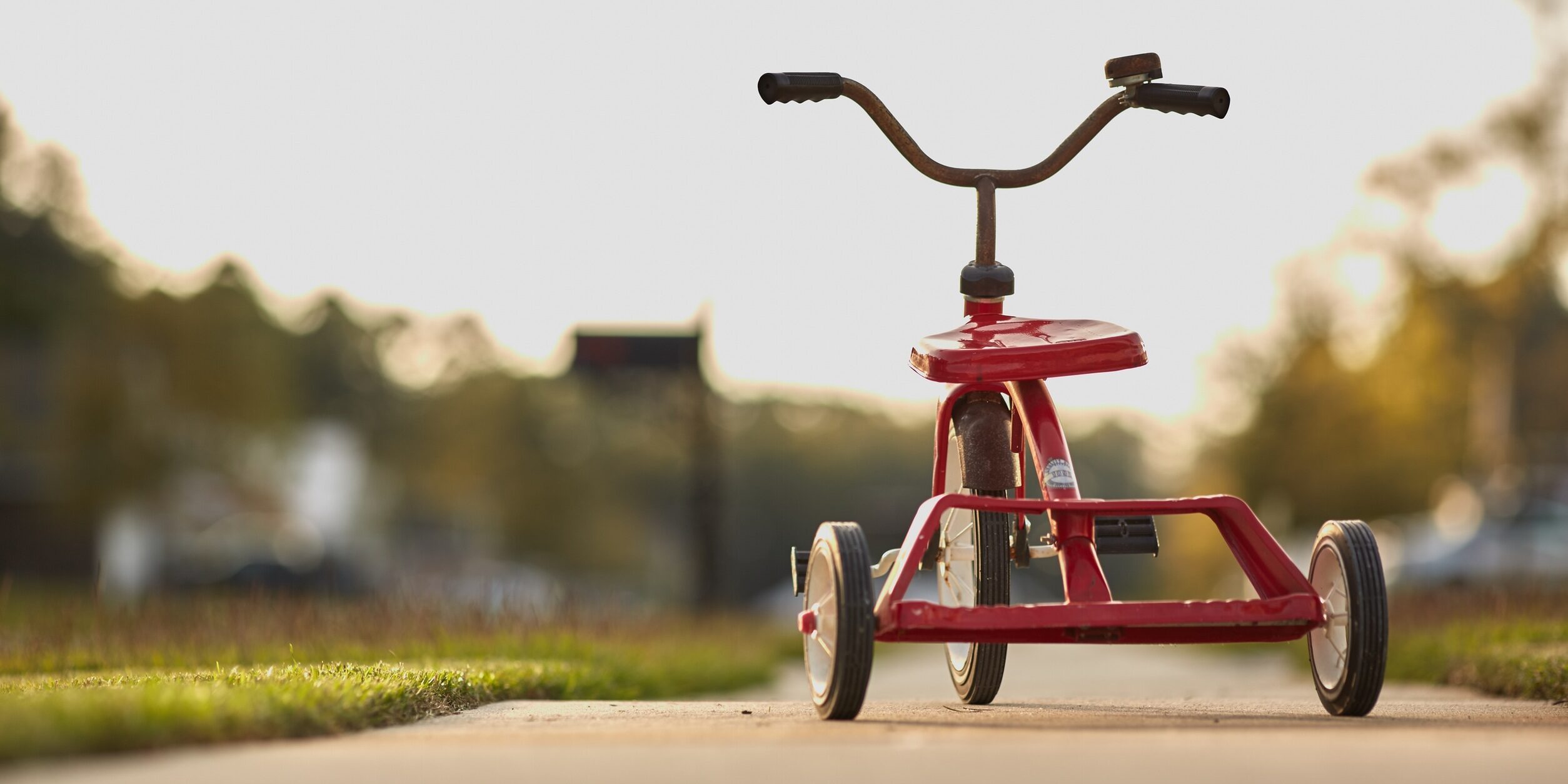When our twin daughters were about 4 years old, I walked into our living room and noticed that they were both sitting next to their tricycle that was upside down and they were spinning the large front wheel over and over. I asked them, “Hey girls, what are you doing?”
“We’re making clothes just like Ma.”
The “Ma” they were referring to was Caroline Ingalls from Little House on the Prairie. Apparently, they’d seen her use a spinning wheel to make thread and they were giving it a shot.
My kids are experts at using stuff in ways that it was never intended to be used. Consider the wagon that was poised at the top of the slide on our swing set ready for bobsledding mayhem (that was fortunately stopped before bodily injury could occur) or my son’s binoculars made out of two plastic cups he found in the pantry. I have a love/hate relationship with this tendency. I am so proud of the creativity that my kids exhibit, but can find it frustrating to find that my bungee cords have been confiscated to create a ropes course in my back yard (and again, these plans were intercepted prior to bodily injury).
Despite the frustration, there is a place for using things in unintended ways – especially in play. However, as some of these examples show, this can also be dangerous.
A friend and 30+ year veteran of public child welfare has said on several occasions that government makes a terrible parent.
Government was never meant to play that role. It is a collection of many people trying to work together to parent not just one child, but dozens if not hundreds of children at a time. These are all people working to make sure that the child’s needs are met, that their interests are defended, and that they are kept safe.
These functions are hard for a group of loosely affiliated people to carry out, especially for so many kids at one time.
Now, this is NOT a criticism of our state workers and administrators. In fact, it is quite the opposite.
What would you think if you came to my house and found me at the sink trying to wash the family china with a hammer? To take it a step further, what if you then saw me accidentally break the handle of one of the teacups and heard me say “This stupid hammer isn’t working!”
You would tell me I’m crazy. After all, washing china was not what hammers were meant for. It’s not that the hammer is bad. Getting a better one won’t make doing the dishes any easier. When we use things for purposes they were not intended for, we should be careful not to criticize those things for failing the task.
We do the same thing with the foster care system. We look to the government to parent hundreds of thousands of children and get frustrated with it when the results are not what we think they should be.
We know that the intended instrument for caring for children is family. But, when family is no longer a safe place for a child to be, what is the “tool” that was intended to provide back up? Yes, Government has and always will have an important role to play in law enforcement and child protection. However, the Church has an ancient mandate to welcome these children in.
God designed family to care for kids and designed his followers to step into the void wherever one might exist. We are commanded throughout scripture not only to care for children who need families but also to show hospitality to strangers. Either way, we were made for this.
Unfortunately, when the right tool or object isn’t available for a job, we are left to settle. When there is no napkin available, don’t be surprised if a sleeve gets substituted. When there is not a pen handy, illegible messages are taken in purple crayon.
And when the Church has not been readily available to show hospitality to children who have needed it for decades, the government has valiantly tried to step into that role. Recognizing this reality should cause us to do three things:
- Resist the temptation to criticize the effectiveness with which our government is carrying out the job
- Pray for those in government who are filling this role
- Continue to labor diligently to gently help followers of Christ step into this space so that one day soon, we as the Church will be doing this sacred job that we were created to do.
Regarding this third point, there is an opportunity coming up this week to help those in your church and community figure out what they were created to do when it comes to foster care. It’s a free webinar entitled Finding Your Piece of the Foster Care Puzzle. AND everyone who attends will receive a free slide deck you can use to help others find their fit in foster care. To learn more and to register, click here.
This post originally appeared in our Foster Roster e-newsletter which is delivered each Friday. We keep it short and sweet and fill it with practical articles, videos, blog posts and other tools for leaders like you working to help kids and families in foster care. To sign up, go to http://bit.ly/1rwn6eO.

